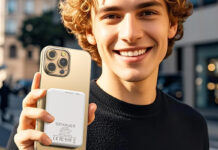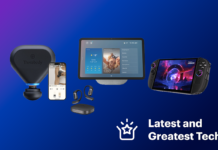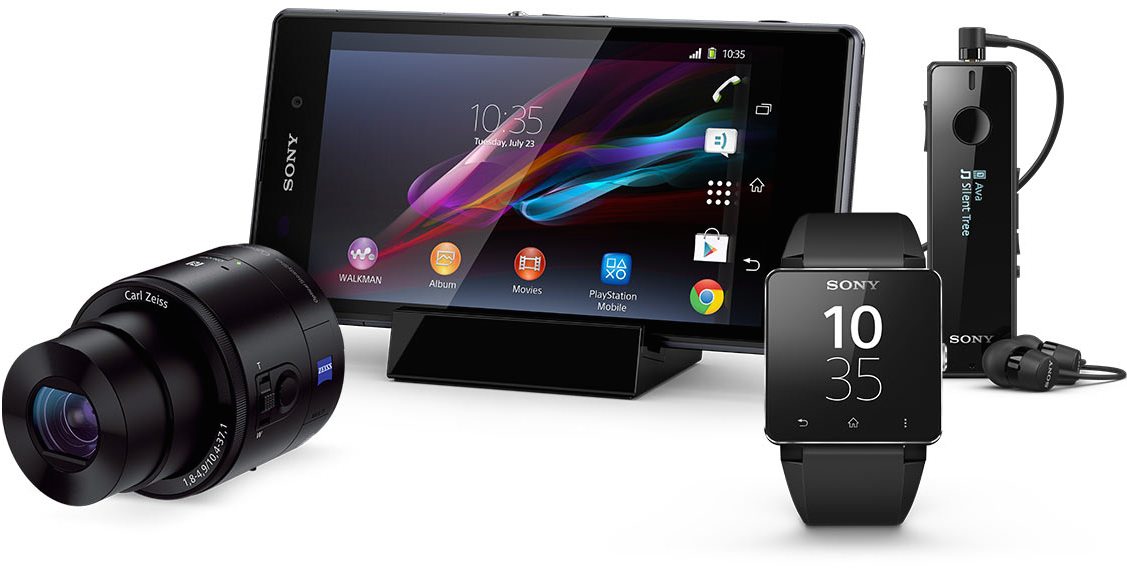
When the cell phone became popular, it quickly became the focal point of our mobile communications. We used our cell phones to talk to others —no matter where we happened to be at the time. Texting then started to become a thing. You could snap quick photos and maybe play a simple game. It was handy, it was tough to imagine living without it, but a cell phone is nothing compared to a smartphone. With the power of a computer in your hand, a display with a resolution on par with HDTV, LTE data speeds that rival your home broadband Internet connection, a high quality camera, gaming capabilities at the level of previous generation consoles, massive amounts of onboard storage, multiple connectivity options and cloud-based synchronization of your services, the smartphone can quickly become an irreplaceable part of your life.
Everyone will find different uses for their smartphone. It all depends on how plugged in you are and how far you push its capabilities. Some people take it to the extreme of making their smartphone their computer (a Bluetooth keyboard, Google Drive and a phablet-style device like the Samsung Galaxy Note 3 and you’re off to the races), while others treat it as a cell phone —making voice calls and maybe sending texts. Most are somewhere in between, but almost everyone agrees: their smartphone helps them to get more out of life.
I use my smartphone all day, every day, and when I look at just how much this little handheld device actually does, I still find it amazing. Here’s an overview of my life on my smartphone.
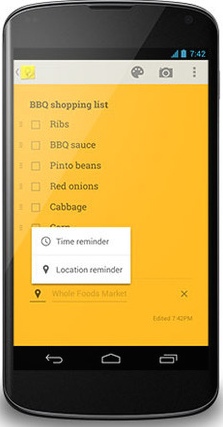 Shared Calendars/To-Do Lists
Shared Calendars/To-Do Lists
I have a busy family life and a business that’ driven by deadlines. Adopting shared calendars which are automatically updated on our smartphones, means I know exactly where I’m supposed to be, where my wife will be and where the kids are supposed to be.
Shared to-do lists means being able to keep a running grocery list going and whenever one of us is in a store, we can whip out our smartphone, scan the list to see if there’s anything we should pick up, then update the list to reflect the purchase.
Mobile Hotspot
My smartphone is my Internet lifeline if I’m working in a remote location or my home Internet connection is disrupted by a cut cable or power outage (which happens frequently, including a four-day run last winter).
When I need an emergency Internet connection for my computer, I turn on Personal Hotspot on my iPhone and use it as a modem. This ability has made a huge difference for me as someone who needs almost constant Internet access to work and has cut web outage downtime to near zero. Just make sure to invest in a data plan that can support your needs.
GPS/Navigation
When we buy a car I have no need to opt for the built-in navigation system upgrade because the GPS on my smartphone combined with apps like Google Maps will get me where I’m going. And because they’re running on my smartphone, I have GPS capability anywhere I can get a cellular or Wi-Fi signal, including hiking or navigating a new city.
Camera
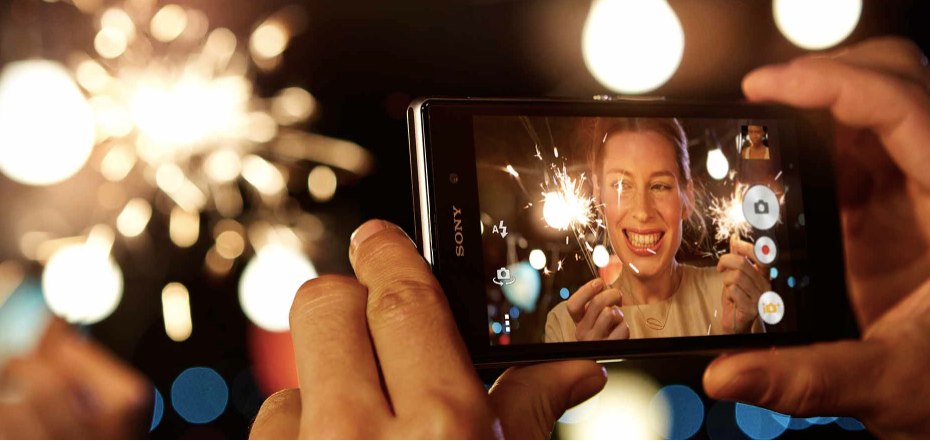
They say the best camera is the one you have with you, and because I carry a smartphone with me at all times, I always have a camera handy. Mine won’t replace my DSLR any time soon, but it’s great for casual snaps. If you want the best smartphone camera experience possible, the new HTC One M8 (reviewed here) has a really cool dual-camera system with Ultrapixels that’s great for low light situations and lets you refocus a shot after the fact. Nokia’s Lumia 1020 packs a 41 MP camera!
Voice and Video Calls
Yes, I occasionally use my smartphone for old school voice calls, but it’s far more likely to be used in video calls. When my wife is at a conference, video calls using our smartphones let the kids wave hello and she’ll show us the view from her hotel room. I’ve even had a video call with my brother, who was on the beach in the Dominican Republic —much cooler than a postcard.
Texting
Not much to say here other than the fact that texting is one of the most frequently used applications on my smartphone. I use it to update people of my progress, ask quick questions and interact remotely with the kids when I’m out for a walk or on an errand.
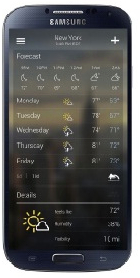 Mobile Reference/Recommendations
Mobile Reference/Recommendations
When on vacation, a smartphone and an app like Yelp are a huge help when trying to pick a restaurant. As someone who does a lot of camping and hiking, I also rely on my smartphone as a mobile reference library, offering everything from landmarks to trail maps and bird identification.
Weather
My smartphone is weather central. If I’m vacation, camping or just planning the best time to cut the grass, being able to whip out my smartphone and see the weather forecast for any city, with precipitation by the hour, is something I completely take for granted.
Alarm Clock
I never set a hotel alarm clock. Why bother fussing with it, when I carry one with me? My smartphone also doubles as a stopwatch and timer.
Photo Album
Having my smartphone with me at all times means having my photo albums with me too. I keep a subset of photos stored locally on the device, but with cloud services, I can access them all from virtually anywhere. You never know when someone is going to ask to see a picture of the kids, one of the dogs or that kitchen reno…
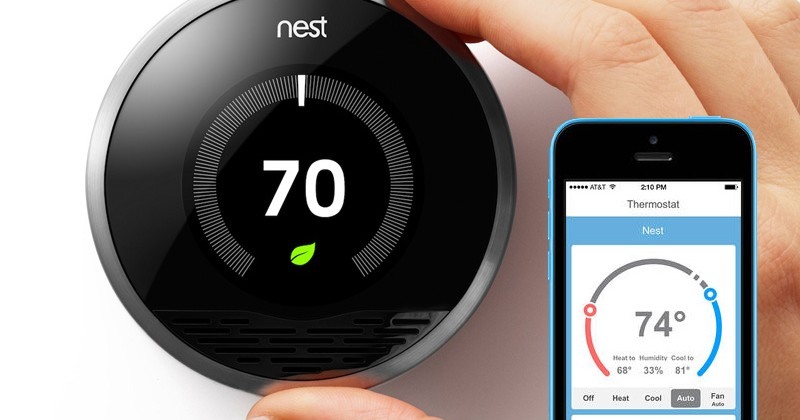 Home Monitoring
Home Monitoring
I have multiple connected security and home automation systems. If our security system alarm is tripped, cameras automatically e-mail a photo of the entry point along with the notification. I can use my iPhone to turn lights on and off, adjust the thermostat or unlock the door (even check to confirm that I remembered to lock it) —from anywhere in the world. My kids are older now, but new parents would likely make good use of the baby monitor version of this technology, like D-Link’s Wi-Fi Baby Camera.
Remote Control
Don’t like the remote that came with your TV or video streaming box? Download an app and use your smartphone. An iPhone can control an Apple TV and many Android smartphones like the Samsung Galaxy S5 are equipped with an IR Baster that lets them do double duty as a TV controller, so you never have to worry about searching the couch cushions for the remote again.
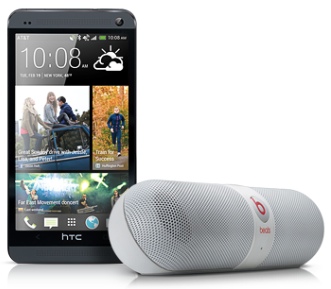 Music Central
Music Central
I’m a music guy. When I was a teenager all of my money went into stereo equipment, records and CDs. Now I can carry my favourite tunes with me in my pocket and my entire digital collection is a quick download away thanks to the cloud. If I feel like something different, I use my smartphone to stream Internet radio.
Even better, with my smartphone and a decent wireless speaker like the Beats Pill, I can connect to the speaker using Bluetooth and get hours of high quality, room-filling music —without wires.
Fitness Tracking
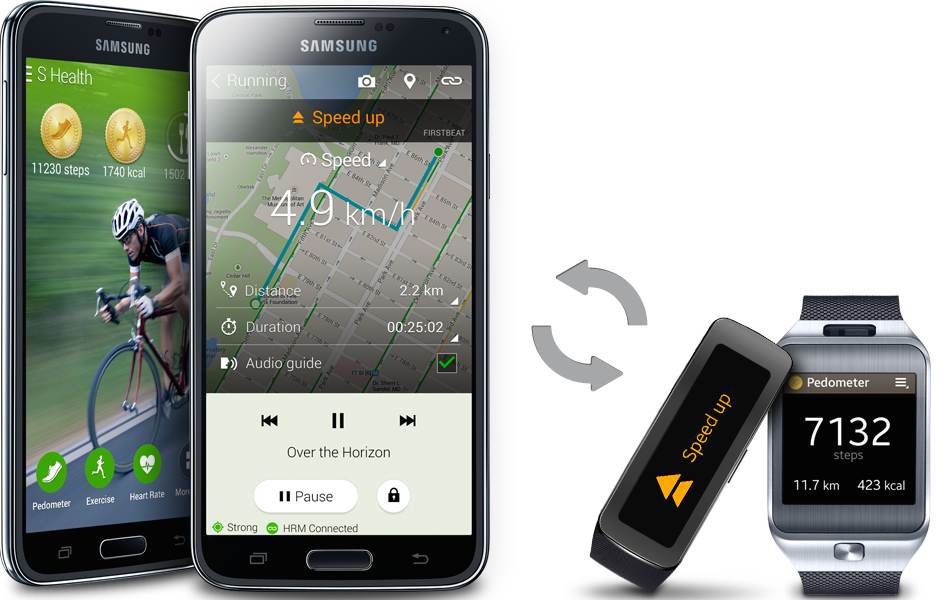
I’m into fitness in a big way (to the point where I work from a treadmill desk for a few hours daily) and my smartphone is the hub of this. I’m a fan of Fitbit trackers, but lots of people swear by others like the Garmin Vivofit. Whatever tracker you use, your smartphone becomes the communication hub, where results automatically upload and where apps display your progress.
I also use apps that let me scan the barcode on food using my smartphone camera, for easy tracking of calories.
Mobile Gaming
Of course, mobile gaming is a big draw. I don’t use my smartphone for gaming to the same extent that some people do, but it’s a great option when waiting for an appointment or when I have a few minutes of downtime. I can sign in and pick up where I left off on my other devices, or if I read about a cool new title it’s just a quick download away. Hundreds of thousands of games costing just a few bucks (or even free) is tough to beat, especially when today’s titles take full advantage of the capability of high powered mobile CPUs and displays.
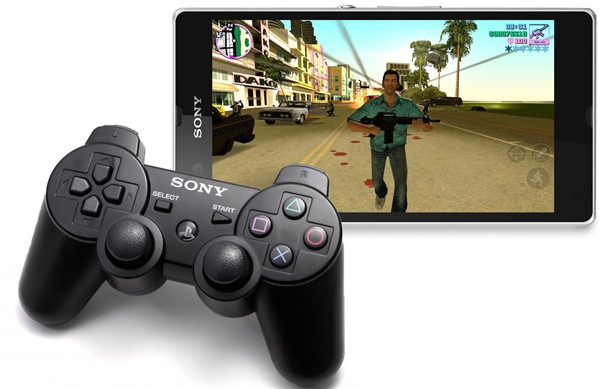
I’m sure there are things I’m missing —and if my smartphone had a larger display I’d undoubtedly be using it to watch movies and read e-books too— but I think the point has been made. A smartphone is much more than a simple communications device. It can quickly become irreplacable and help you to get more out of life. Check out the huge range of smartphones, wireless plans and accessories at Best Buy.

